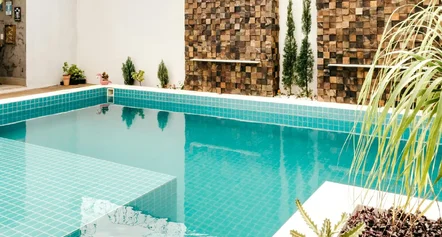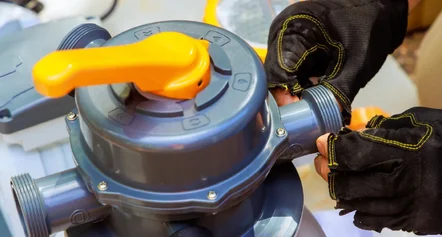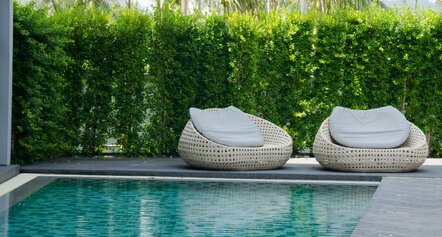Have you ever wondered how long it takes to eliminate harmful pathogens like Cryptosporidium from your swimming pool? Even with optimal chlorine levels, thischlorine-resistant parasitecan take over10 days to be inactivated, putting countless swimmers at risk during that time.
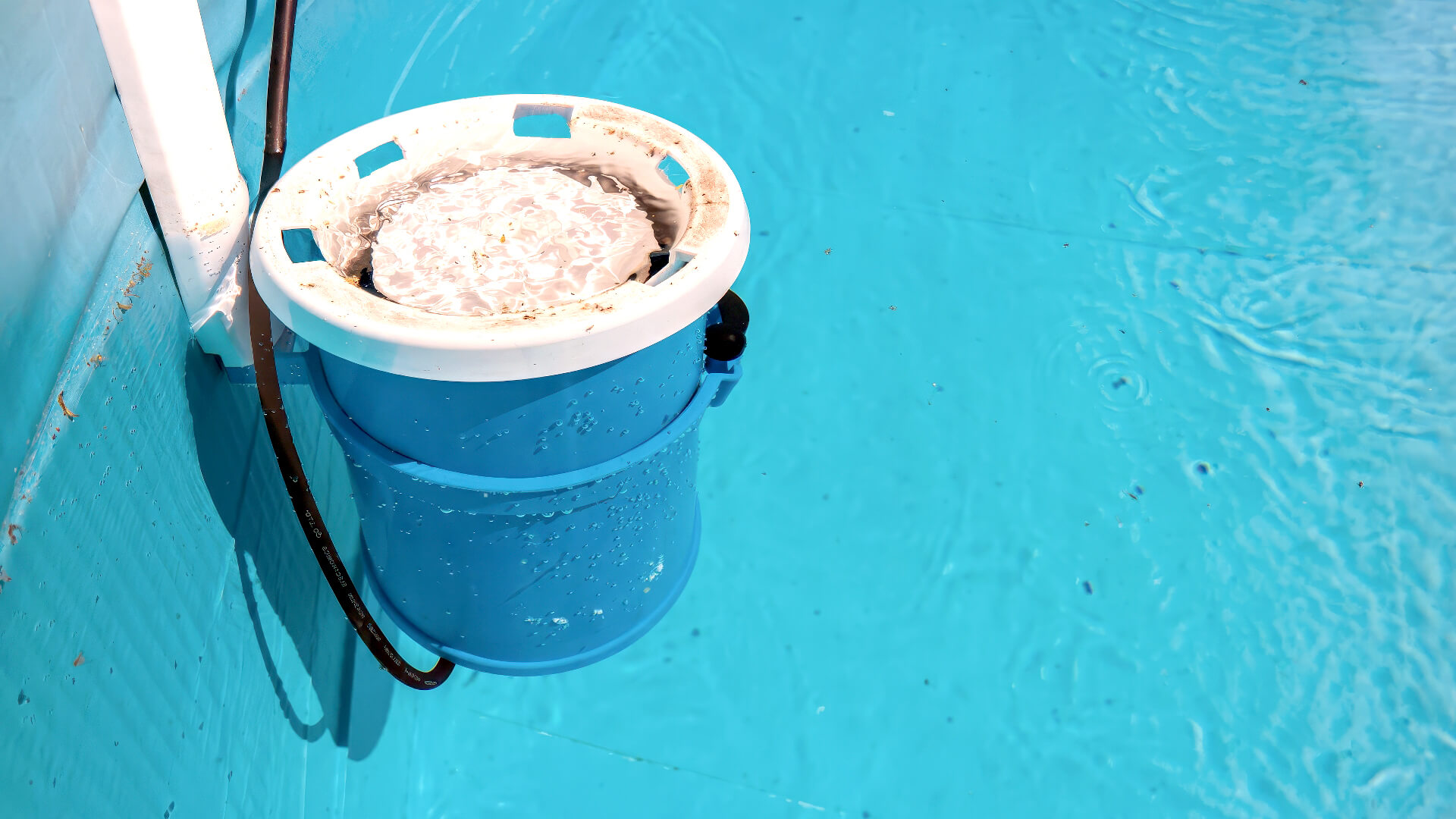
Studies show that while standard sand filters remove only about 25% of these resilient oocysts with each pass, coagulants can dramatically improve filtration efficiency, achieving up to 99% removal. This highlights the critical role of an effective filtration system in maintaining a safe and clean above-ground pool.
Choosing the right filtration system is essential not just for crystal-clear water but also for minimising health risks and ensuring easier pool maintenance. In this blog, we’ll explore various filtration options available for above-ground pools, each with unique advantages, to help you make an informed decision for your backyard oasis.
Let’s Start With The Basics Of Pool Filtration Systems
Keeping your above-ground swimming pool water clean is essential for both health and enjoyment. A well-chosen pool filtration system helps filter out dirt, debris, and contaminants, ensuring your pool water stays crystal clear. Let’s explore the basics of pool filtration and the different types of pool filters available.
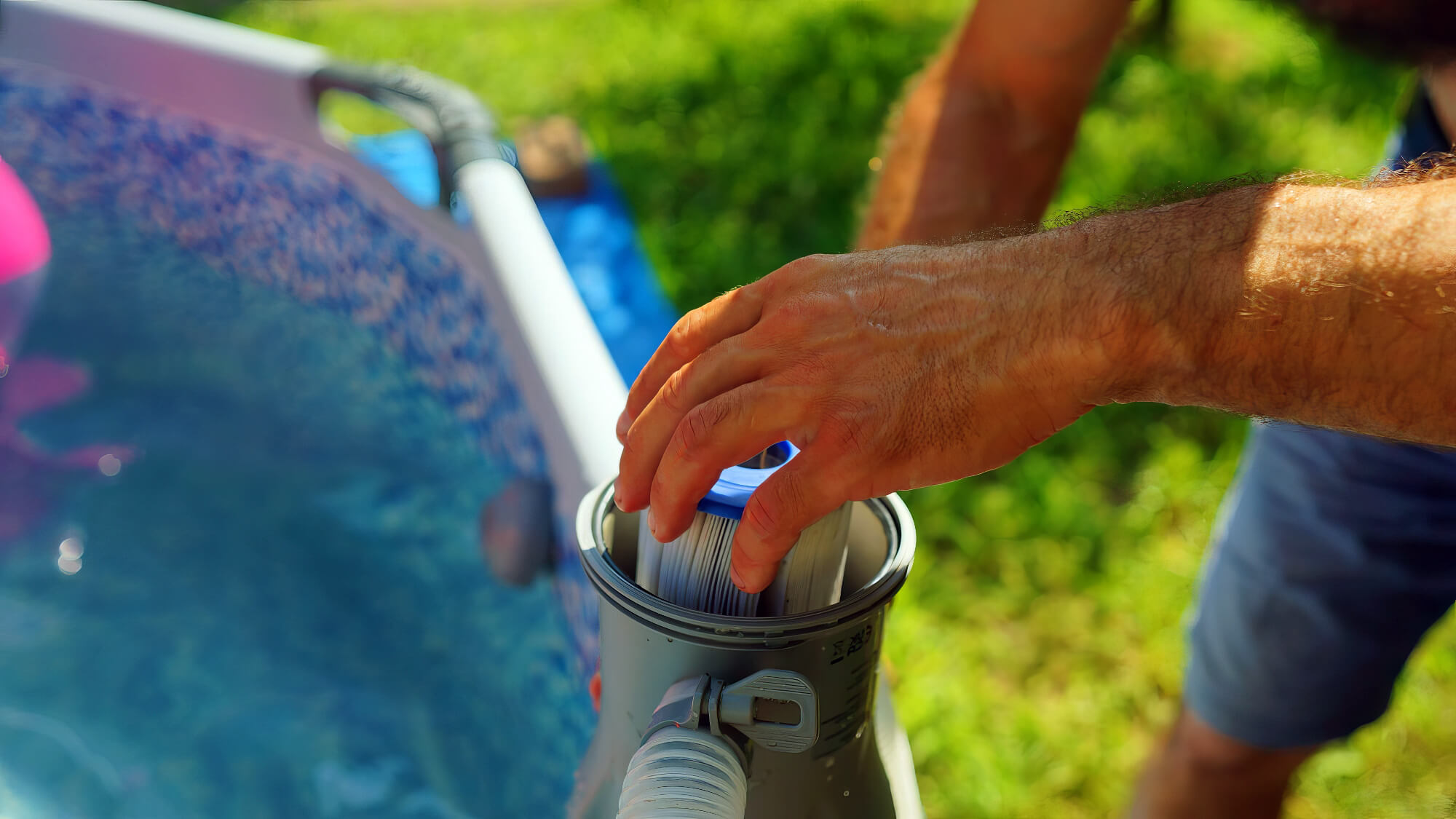
Overview of Pool Filtration Systems
A pool filtration system is the heart of your pool’s maintenance routine. Whether you have an above-ground pool or an in-ground swimming pool, the right pool filter is crucial for filtering out particles as small as 10 microns, including dirt, debris, and other contaminants.
Your pool filter circulates water in tandem with your pool pump, ensuring that your swimming pool stays clean and inviting. The flow rate, filter size, and turnover rate are all key factors in keeping your pool water clean.
Types of Pool Filters
When choosing the right pool filter for your above-ground pool, consider the three main types of filters:
- Sand Filters: These filters use sand filter media to trap debris. While sand filters are effective, they typically capture particles larger than sand cartridge filters, meaning you may need to replace the sand more frequently.
- Cartridge Filters: Cartridge filters offer finer filtration than sand filters, trapping smaller particles. However, you’ll need to replace the cartridge filter more often than sand filter media.
- Diatomaceous Earth (DE) Filters: DE filters are the most efficient, filtering out particles smaller than 10 microns. Diatomaceous earth filters provide superior water clarity but require more maintenance and a higher budget.
Considerations for Choosing the Right Pool Filter
When selecting a pool filter system, consider your pool size, budget, and pool maintenance preferences.
The size of your pool and your filter pump’s flow rate will determine the appropriate filter size. Additionally, remember that pool filters vary in maintenance requirements; for example, DE filters require more frequent cleaning and a specific filter cleaning solution.
Choosing the right filter will help maintain your pool water and ensure a safe and enjoyable swimming experience.
Let’s discuss more of these pool filter options below.
Option 1: Sand Filtration Systems
Sand filtration systems are popular for pool owners due to their simplicity and effectiveness. Let’s explore how they work, their benefits, and what you should consider before choosing one.
How They Work
Sand filtration systems operate by filtering your pool water through a bed of specially graded sand. As the water flows through the sand filter, debris and particles are trapped within the sand bed, allowing clean water to return to the pool.
The system relies on sand’s natural filtering properties to remove contaminants. Larger particles are captured on the surface, while smaller ones are caught deeper in the sand bed.
Advantages
One of the main advantages of sand filters is their cost-effectiveness. These systems are generally more affordable than other filtration options, making them a great choice for budget-conscious pool owners.
Sand filters are also durable and can last for many years with proper care. In addition, they are easy to operate and maintain, requiring minimal effort to keep your pool water clean. Sand filtration systems are particularly well-suited for larger pools, as they can easily handle a higher volume of water.
Considerations
While sand filters are effective, they do have some limitations. They may not trap particles as small as those captured by cartridge or diatomaceous earth filters. Additionally, sand filters require periodic backwashing to remove trapped debris, which can result in some water loss and increase maintenance time.
Who Should Use Them
Sand filtration systems are ideal for pool owners who prioritise affordability and simplicity. A sand filter might be the perfect choice if you have a larger pool and prefer a low-maintenance option.
Option 2: Cartridge Filtration Systems
Cartridge filtration systems are known for their efficiency and ease of use. Here’s how they work, their advantages, and what to consider before choosing.
How They Work
Cartridge filtration systems pass water through cylindrical cartridges made of pleated fabric. The pleats trap particles and debris as the water flows through the cartridge, preventing them from re-entering the pool.
This process allows the system to capture finer particles compared to sand filters. The pleated design increases the surface area for filtration, enhancing the system’s overall efficiency.
Advantages
One of the primary advantages of cartridge filters is their ability to trap finer particles, providing superior water clarity. Unlike sand filters, cartridge filters do not require backwashing, which means less water is wasted.
This makes them an environmentally friendly option. Additionally, cartridge filters are relatively easy to maintain. They only need to be removed and hosed down periodically, and the cartridges last several years before needing replacement.
Cartridge filters are a popular choice for many pool owners because of their ease of maintenance and effective filtration.
Considerations
Cartridge filtration systems have a higher initial cost than sand filters. Plus, the cartridges require regular cleaning and eventual replacement, which adds to the ongoing maintenance costs. It’s important to factor in these expenses when considering a cartridge filter for your pool.
Who Should Use Them
Cartridge filtration systems are ideal for pool owners who seek a balance between efficient filtration and convenience. A cartridge filter is an excellent choice if you’re looking for a system that offers better water clarity with minimal water wastage.
Option 3: Diatomaceous Earth (DE) Filtration Systems
Diatomaceous Earth (DE) filtration systems are renowned for their exceptional filtration capabilities. Let’s look at how they work, their benefits, and what to consider before choosing one.
How They Work
DE filtration systems operate by passing water through a grid coated with diatomaceous earth powder. This powder is made from the fossilised remains of tiny aquatic organisms called diatoms.
As water flows through the DE-coated grids, the powder captures even the smallest particles, including those as small as 2-5 microns. This process ensures that only the cleanest water is returned to the pool, making DE filters the most effective option among the three main types of filtration systems.
Advantages
The key advantage of DE filters is their superior filtration quality. They can remove the tiniest contaminants, ensuring your pool water is crystal clear.
DE filters deliver the cleanest water, making them ideal for pool owners who demand the highest level of water clarity. Additionally, DE filters can efficiently handle large volumes of water, making them suitable for small and large pools.
Considerations
While DE filters offer the best filtration, they require more maintenance than sand or cartridge filters. The DE powder must be replaced periodically, and the filter grids need regular cleaning. Additionally, DE filtration systems tend to have higher upfront costs, which may be a consideration for budget-conscious pool owners.
Who Should Use Them
DE filtration systems are ideal for pool owners who prioritise the finest water quality and are willing to invest in a more hands-on maintenance routine. A DE filter is the perfect choice if you value pristine water clarity and don’t mind the additional upkeep.
How To Choose The Right Filtration System
Selecting the right filtration system for your pool requires careful consideration of several factors.
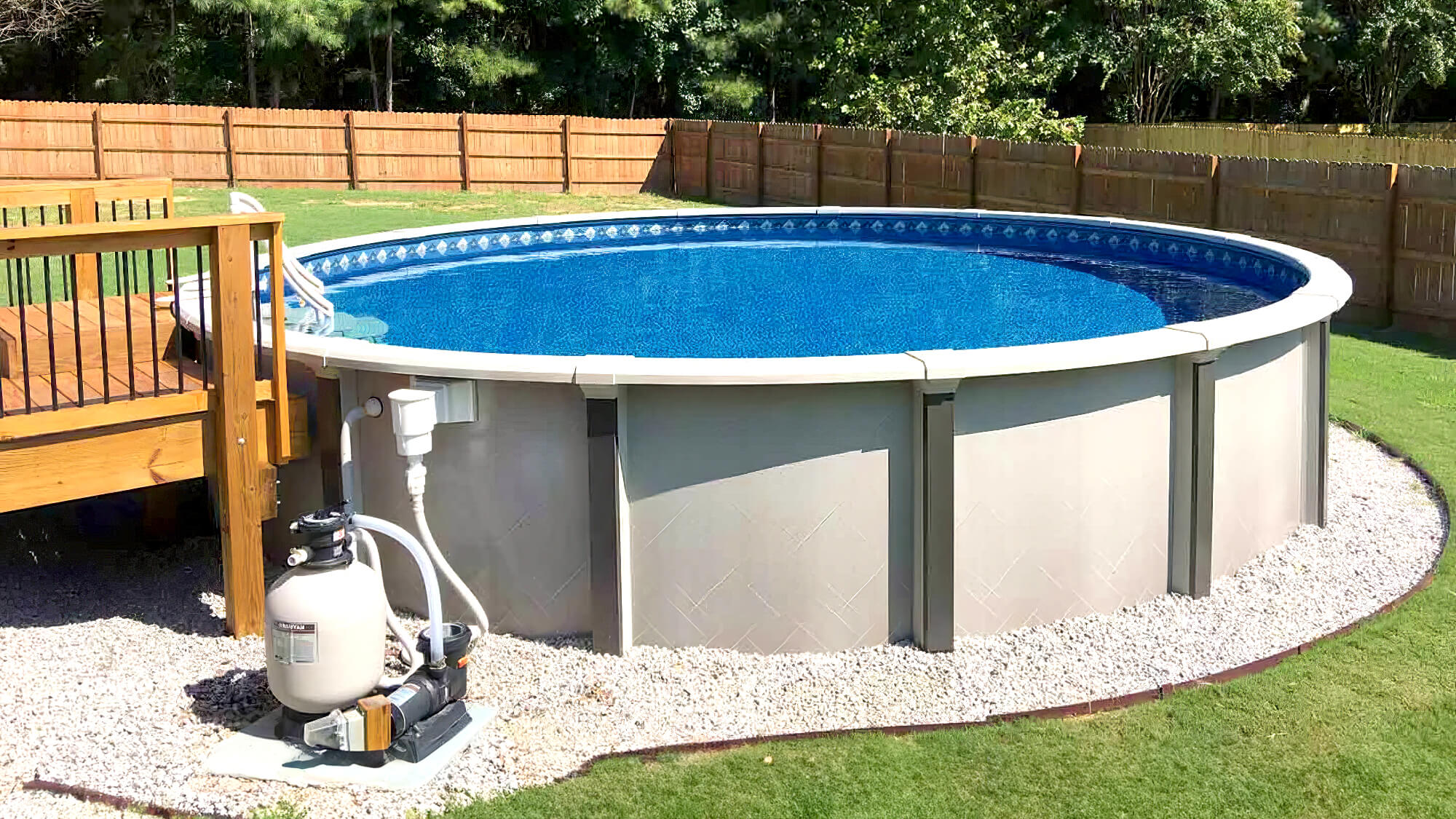
Pool Size
The size of your pool is a critical factor in choosing a filtration system. Larger pools typically benefit from sand filters because they can handle higher water volumes efficiently. Conversely, smaller pools might find cartridge filters more suitable, as they offer finer filtration without the need for large-scale equipment.
Budget
Your budget will significantly influence your choice of filtration system. Sand filters are generally the most affordable option, making them ideal for those with budget constraints. Cartridge filters offer a balance between cost and performance, while DE filters, although more expensive, provide the highest level of water clarity.
Be sure to factor in both initial costs and ongoing maintenance expenses.
Maintenance Commitment
Different filtration systems require varying levels of maintenance. Sand filters need periodic backwashing, while cartridge filters require regular cleaning but no backwashing.
Though highly effective, DE filters demand more frequent maintenance, including replacing the DE powder. Choose a system that aligns with your maintenance preferences.
Local Environment
Your local environment also plays a role in choosing a filtration system. If trees or plants surround your pool or are used frequently, a system that effectively handles debris, like a cartridge or DE filter, might be best. Additionally, consider your local climate, as pools in warmer regions may require more robust filtration systems to maintain water quality.
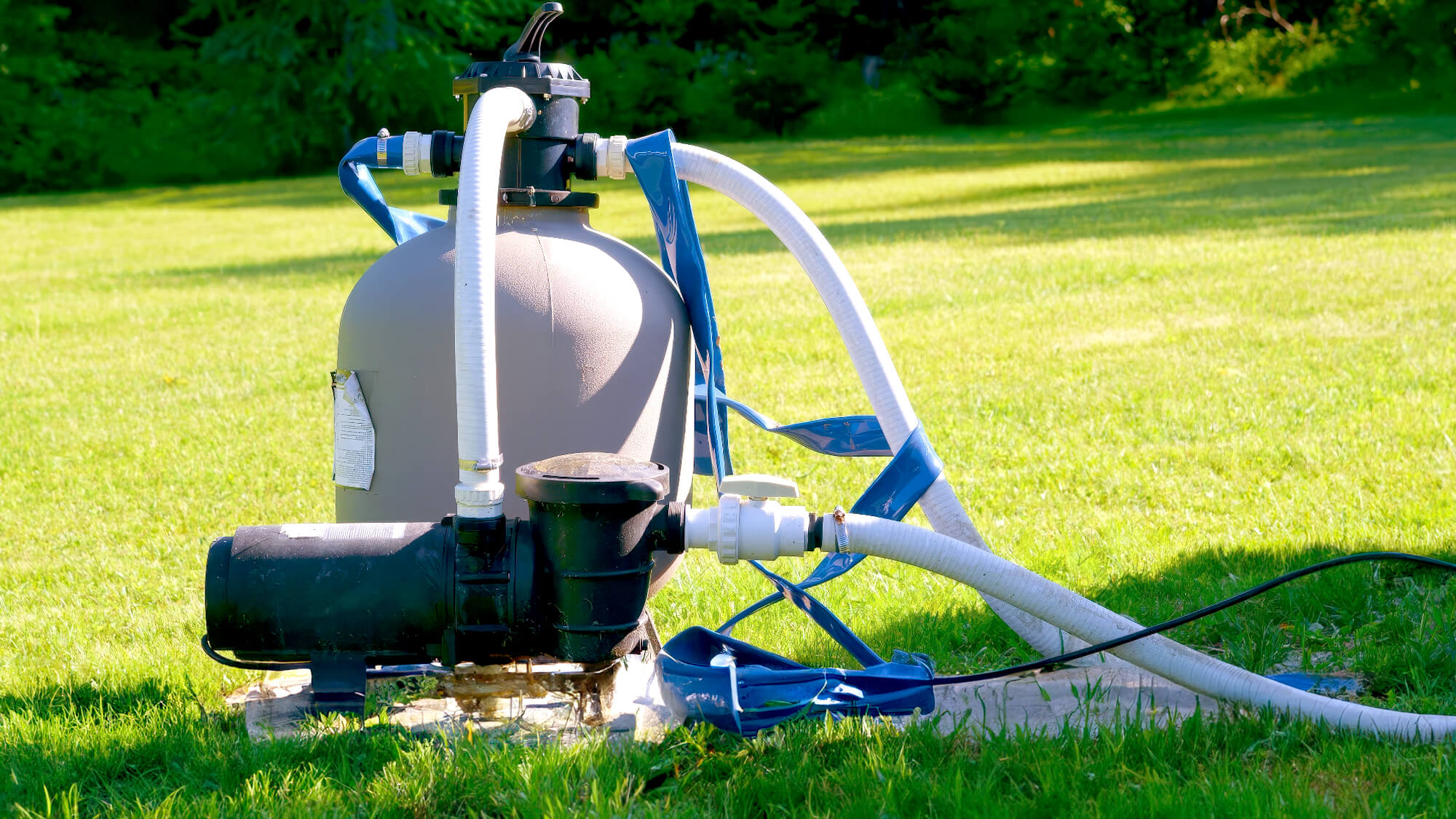
Making the Final Decision
When choosing a filtration system, consider each option’s unique characteristics. Sand filters are cost-effective and durable, making them ideal for larger pools and budget-conscious owners.
However, they may not capture the finest particles and require regular backwashing.
Cartridge filters offer finer filtration and reduced water wastage with easy maintenance. However, they have a higher initial cost and require regular cartridge replacement. DE filters deliver the cleanest water by removing the smallest contaminants, but they require more hands-on maintenance and a larger investment.
A sand filter might be your best bet if you have a larger pool and a tighter budget. If you seek a balance between efficient filtration and convenience, consider a cartridge filter.
A DE filter is the ideal choice for those who prioritise superior water quality and are willing to invest in maintenance. Consider your pool size, budget, and maintenance preferences to find the perfect fit.
Enjoy Crystal-Clear Waters with the Right Filtration System
Choosing the right filtration system is crucial for maintaining a clean and healthy pool environment. A well-chosen system not only keeps your pool water crystal clear but also reduces maintenance efforts, allowing you to enjoy your pool to the fullest.
Whether you opt for the cost-effective sand filter, the balanced cartridge filter, or the superior DE filter, the decision you make will directly impact the quality of your pool experience for years to come.
At Flamingo Pools, we understand the importance of selecting the right filtration system for your above-ground pool.
Our experts are here to guide you through the process, ensuring you find the perfect match for your specific needs, whether it’s based on pool size, budget, or maintenance preferences.
We offer a wide range of services, from installation to ongoing maintenance, to help you get the most out of your pool.
Contact Flamingo Pools today for professional advice, and let us help you ensure that your pool remains a source of enjoyment and relaxation for years to come.


